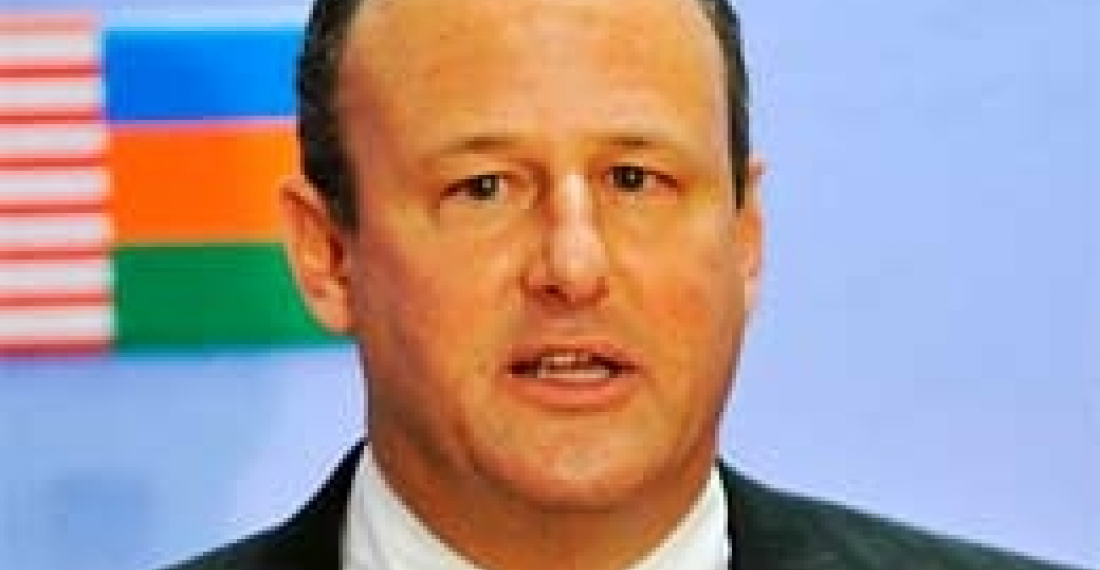"The Nagorno Karabakh conflict must be solved in a peaceful way, and the diplomatic talks must be continued", said Deputy Assistant Secretary of State Eric Rubin on the sidelines of his visit to Baku, APA reports.
Rubin mentioned that OSCE Minsk Group adopted a statement on the settlement of the conflict: "The sides must avoid steps escalating the tension. Being a co-chair of the OSCE Minsk Group, we support the activity of the co-chairs towards the conflict solution".
The Nagorno-Karabakh conflict broke out on February 28 1988 in the Azerbaijani Sumgait with massacre of Armenians as a peculiar response of Azerbaijanis to the peaceful demand of the Nagorno-Karabakh autonomous Region, part of the Azerbaijani SSR, to unite with the Armenian SSR. This resulted in other pogroms of Armenians in Baku, Kirovabad and other regions of Azerbaijan populated with Armenians. In 1991 Azerbaijan unleashed war against peaceful populations of Nagorno-Karabakh, expulsing ethnic Armenians from the territory of Azerbaijan. Dozens of thousands of peaceful residents on both parties were killed in the military actions, and hundreds of thousands were left homeless and have become refugees. In 1994 in Bishkek in
mediation of the OSCE MG, the NKR, Azerbaijan and Armenia signed a Protocol on Ceasefire that is observed more or less so far. Since 992 the OSCE Minsk Group represented by co- chairs from Russia, U.S. and France has been mediating in resolution of the conflict unleashed by Azerbaijan in 1988. At present the peace process is based on the Madrid Principles suggested by the OSCE MG in 2007 in Madrid and renovated in 2009.
Eric Rubin: "Nagorno Karabakh conflict must be solved in a peaceful way; diplomatic talks must be continued"
Eric Rubin: "Nagorno Karabakh conflict must be solved in a peaceful way; diplomatic talks must be continued"







